Bill Bois’ Music Theory For Non-Musicians™
…if there was ever an art where breaking the rules is one of the rules, it’s music.
redditor u/COMPRIMENS
S3:E6 – What Makes Disco Disco? Part 2
In Part 1 we talked about disco’s rise from the underground to the mainstream.
We left off with the popularity of Casablanca Records.
Casablanca and the labels that followed the trend worked mostly with disco producers, rather than with artists. The producer would write or acquire the song, hire the musicians, pick the right singer, and book a recording session. Each producer could work on several projects at the same time.
Since they were making records to be played in discos, the songs didn’t need a face or band to promote them on concert tours. It didn’t need a video. There was no need to worry about making sure it could be played live. It just had to be danceable.
A disco album could be recorded for $20,000, while a rock record could be over five times that. No wonder labels were interested.
Disco made good business sense.

Frankly, a lot of it wasn’t very good. When music becomes product, it’s no longer art.
Maxine Nightingale, who got to #2 on the Hot 100 with Right Back Where We Started From, said, music is “the only industry apart from prostitution that sells a live product.” But some disco was very good, including Right Back Where We Started From, and would make stars of Donna Summer, Gloria Gaynor, K.C. & The Sunshine Band, and dozens of others.
Existing rock and R&B acts hopped on the disco train. Some did just a song or two, like Miss You by the Rolling Stones and Do Ya Think I’m Sexy? by Rod Stewart.
But some of these existing acts went into a disco phase.
By far, the most successful was the Bee Gees.
They had some minor hits in their native Australia starting with their first few singles in 1963, but they became a global entity in 1967 and had multiple charting singles every year until 1980 when they released a greatest hits album.

Disco started influencing their sound on their 1975 album Main Course, and its singles Jive Talkin’ and Nights On Broadway.
The next year, their Children Of The World album produced three Top 20 singles, including the #1 You Should Be Dancing.
And then came the opportunity to write music for a low budget movie called Tribal Rites Of A Saturday Night.

The movie was already in post-production. During filming, the actors danced to Stevie Wonder and Boz Scaggs songs, for which the production didn’t have rights to use in the finished product. The songs would have to be replaced with new ones that were the same tempos.
The movie’s producer, Robert Stigwood, also ran a record label called RSO. When his film needed disco songs, he of course asked one of the artists on his own label. The Bee Gees were already working on their next album for RSO.
They didn’t want to take time away from the album, so they wrote five songs for the soundtrack over a weekend.

Four of them hit #1 on the Hot 100:
If I Can’t Have You performed by Yvonne Elliman, and the Bee Gees’ own How Deep Is Your Love, Stayin’ Alive, and Night Fever.
Drummer Dennis Bryon’s mother passed away during the session for Stayin’ Alive and he had to leave, so the Bee Gees took a two bar section of the drums from Night Fever and looped it. I guess that made it easy for disco DJs to segue from one to the other.
Night Fever also helped give the movie a better name.
It became Saturday Night Fever.
The movie and its soundtrack album were massive hits. The album is still the second best selling soundtrack, behind The Bodyguard.
Saturday Night Fever made disco even more popular. Dance clubs opened in smaller cities and towns, and in New York City, clubs opened in midtown. Discothèques were no longer just for gay neighborhoods.

A former opera house and CBS studio on 54th Street was converted into Studio 54. It became the most famous, exclusive, and decadent disco.
Steve Rubell and Ian Schrager spent $400,000 (about $2.1 million in today’s money) on renovations. I don’t have any figures on how high the cocaine budget was.
Studio 54 became the place to see and be seen, but there was no guarantee you could get in. The unwritten admission policy said single men couldn’t enter. Celebrities could. In-between, it depended on your look. Being beautiful or extremely well-dressed helped. Regulars included Liza Minelli, Truman Capote, Andy Warhol, and Bianca Jagger.
Nile Rogers and Bernard Edwards of Chic were turned away at the door one night and got so pissed off they went home and wrote a song called F— Off.

Realizing that it was a good song but it would never get airplay, they changed it to Freak Out, and then to Le Freak.
It hit #1 in December 1978
Once inside, it was all dancing and sex and drugs. Studio 54 could have been called Hedonism Central, with people having sex in the balcony and doing drugs basically everywhere. While the coke gave people the energy to dance all night, the most famous patrons were offered their choice of the waitstaff for some time alone.
Disco started as a rebellion. No matter what your color or orientation, it was a way of celebrating yourself. In Studio 54, it was a way of debasing yourself.
It couldn’t last.
Surprisingly, it wasn’t drug charges that sent Rubell and Schrager to prison. They plead guilty to tax evasion and were sentenced to three and a half years each, but avoided conspiracy and obstruction of justice charges. They sold the club in 1980.
Through all of that, disco’s popularity continued to grow, and every record label released as much disco as they could.
Manufacturers of basically anything put out disco versions of their products. It could be shoes, which are necessary for dancing, or sunglasses, which aren’t.
For all I know, there could have been disco breakfast cereal.

I’m so sorry.
In California, a discothèque called Icecothèque opened. You could disco dance on ice skates there.

There was a Yuletide Disco album.

Even Ethel Merman had a disco album.
I won’t even bring up Disco Duck.

If you have ten minutes, check out this breathless video describing a movie that was almost made, starring Cher, Donna Summer, Robin Williams, KISS, The Village People, three Rodney Dangerfields, and either Bo Derek or Daryl Hannah in the title role of “Disco Dazzler.” It would have been the first Marvel comic book movie. How anyone thought it was a good idea is a mystery.
Speaking of the Village People, they had some massive hits.
And are truly one of the most subversive bands of the 20th century.
We have an expression now that didn’t exist in the late 70s: If you know, you know. If you didn’t know the Village People’s characters – the cowboy, the Indian, the cop, the leather-clad biker – were gay fantasy figures, as a lot of middle America didn’t, you thought they were cartoonish, harmless fun.

But if you knew some gay men like sailors and construction workers, you knew the Village People were sneaking gay, camp role playing into conservative living rooms.
To this day, their song Y.M.C.A. is played at almost every straight wedding reception I attend. I swear, most of the happy couples and their families have no idea it’s about cruising for a hookup at the gym. The lyrics don’t say that explicitly, so maybe that’s what it’s about only if you know that’s what it’s about.

There was also an uptick in straight men going to gyms.
Everyone wants to be a Macho Man.
As disco’s popularity grew, the resistance against it grew, too.
Conservative, straight, white males felt oppressed, because when you’re in a position of privilege, equality feels like oppression. Musicians weren’t happy because clubs were playing records rather than hiring bands. Radio DJs didn’t like playing music they didn’t have a hand in making popular.
Steve Dahl was one of those DJs. He lost his job when his Chicago radio station switched from rock to disco, and he held a grudge. Using the motto “Disco sucks,” he started a counter-movement. As part of that, he promoted a “Disco Demolition Night.”
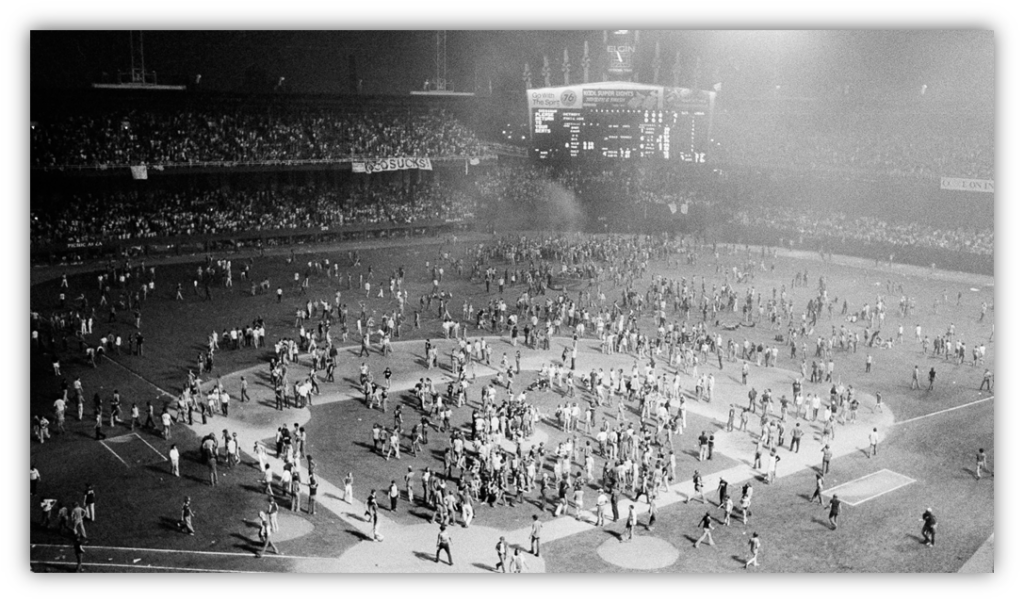
He encouraged his fans to bring their disco records so he could blow them up in center field of Comiskey Park between games of a White Sox doubleheader. People who did so got discounted admission, but they brought more than disco records. They brought any record with a black person on the cover. The racism and homophobia was there for anyone who cared to see.

The 50,000 seat park was sold out, and an estimated 20,000 others either sneaked in or crashed the gates in time for the explosion. It blew a crater into center field and fans stormed the diamond. It became a riot. The batting cage was destroyed, equipment was stolen, and the field was torn up.
Security was unprepared and understaffed. They had locked all but one gate to keep people out, but that just prevented people who wanted to leave, for their own safety, from doing so. The second game was canceled and declared a forfeit the next day.
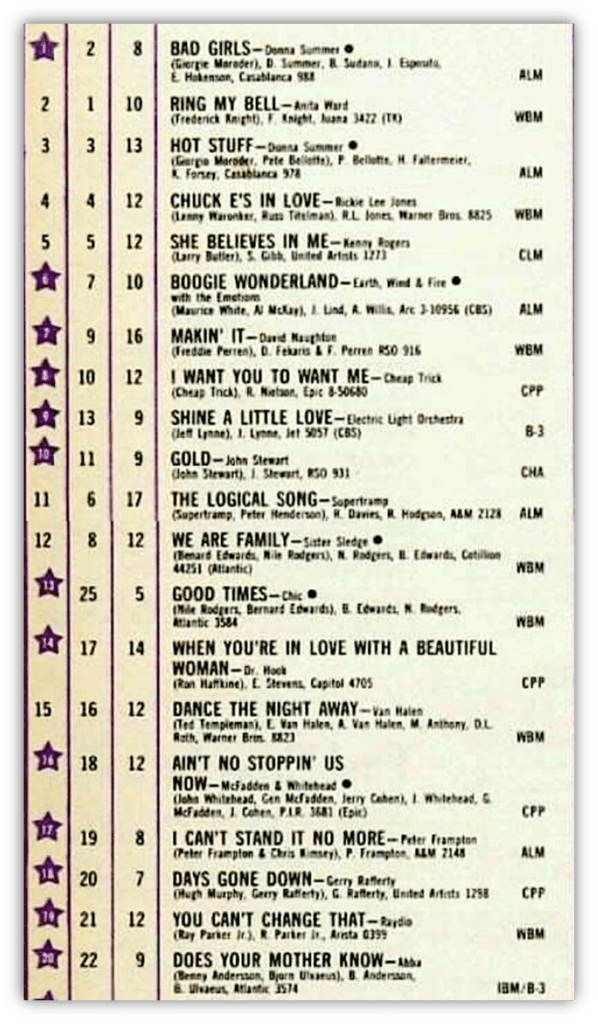
The melee was national news by morning. While the destruction was done entirely by the anti-disco side, Disco Demolition Night did its job. On Billboard’s Hot 100 the following week, the top songs were disco.
By the September 22nd chart, there were none in the top ten.
Dahl, by the way, gained an even larger following and did radio for decades after. He currently does a daily subscription based podcast. He’s in the National Radio Hall of Fame.
The following year, Ronald Reagan was elected president.
A year later, a disease called AIDS started spreading. Most of its victims were gay men. Reagan chose to do nothing about it, possibly because he beat Jimmy Carter with help from a group called Christians For Reagan who ran ads threatening, “The gays in San Francisco elected a mayor; now they’re going to elect a president.” The ads ran only in the South. Pre-internet, the rest of the country never heard about them.
Reagan remained silent about AIDS until his friend and fellow actor Rock Husdon died of the disease, and even then his response was half-hearted. A large portion of his base thought AIDS was God’s punishment for homosexuality, and he didn’t want to lose their votes.
AIDS gave the homophobic an excuse to be against anything remotely gay.
Disco was forced underground again.
It reemerged later in the 1980s at gay pride events and its influence can now be heard in music by Daft Punk, Dua Lipa, Doja Cat, and more. Its influence can also be seen politically, though it’s only political in retrospect. No one set out to change the world. They just wanted to dance.
Sometimes, though, being yourself is a political act.
At first, disco was more underground than punk. It became aspirational music for blacks and gays and women.
It was a time when Donna Summer and the androgynous Sylvester were both known as the “Queen of Disco.”
Dino Fekaris wrote I Will Survive after getting fired from Motown, and Gloria Gaynor recorded the vocals after a break up and sustaining injuries falling off a stage. The song meant something to both of them, but it meant a whole lot more to listeners.
We will one day get to true equality globally. We will survive.
Last week, President Biden signed the Respect For Marriage Act, protecting same sex marriage nationwide.
I’m sure someone somewhere is planning a case to get it declared unconstitutional.
But for now, the time is right for dancing in the streets.
With whoever you want.
Suggested Listening:

Right Back Where We Started From
Maxine Nightingale
1975

Night Fever
The Bee Gees
1976

Shame
Evelyn “Champagne” King
1977

Let’s Have Some Fun
The Bar-Kays
1977

Bite Your Granny
Morning, Noon & Night
1977

Le Freak
Chic
1978

You Make Me Feel (Mighty Real)
Sylvester
1978

Y.M.C.A.
The Village People
1978

I Will Survive
Gloria Gaynor
1978

Funkytown
Lipps Inc.
1980

Give Me The Night
George Benson
1980

It’s Raining Men
The Weather Girls
1982

Groove Is In The Heart
Deee-lite
1990
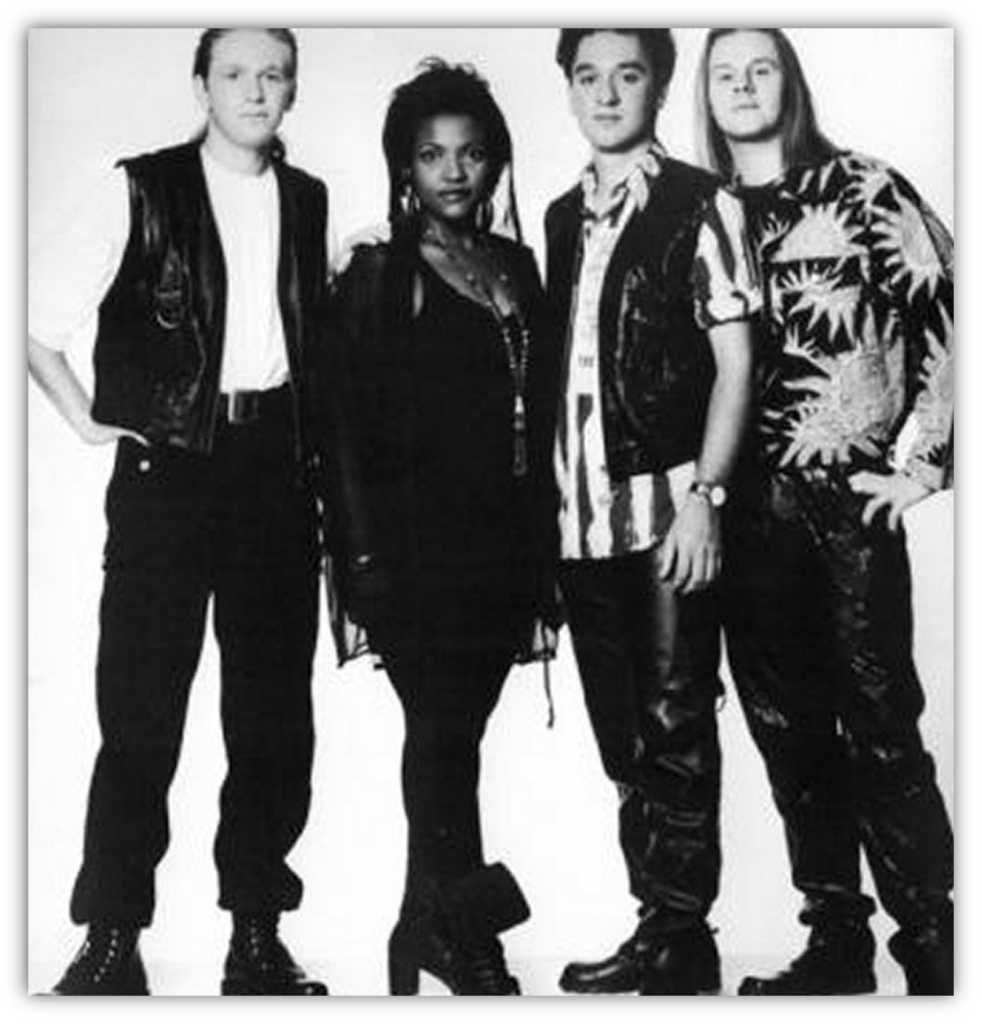
I’m Gonna Get You
Bizzare Inc.
1992

Believe
Cher
1998

Get Lucky
Daft Punk feat. Pharrell Williams and Nile Rogers
2013

One Kiss
Calvin Harris & Dua Lipa
2018

Say So
Doja Cat
2020
(Let the author know that your liked their article with a “Heart Upvote!”)


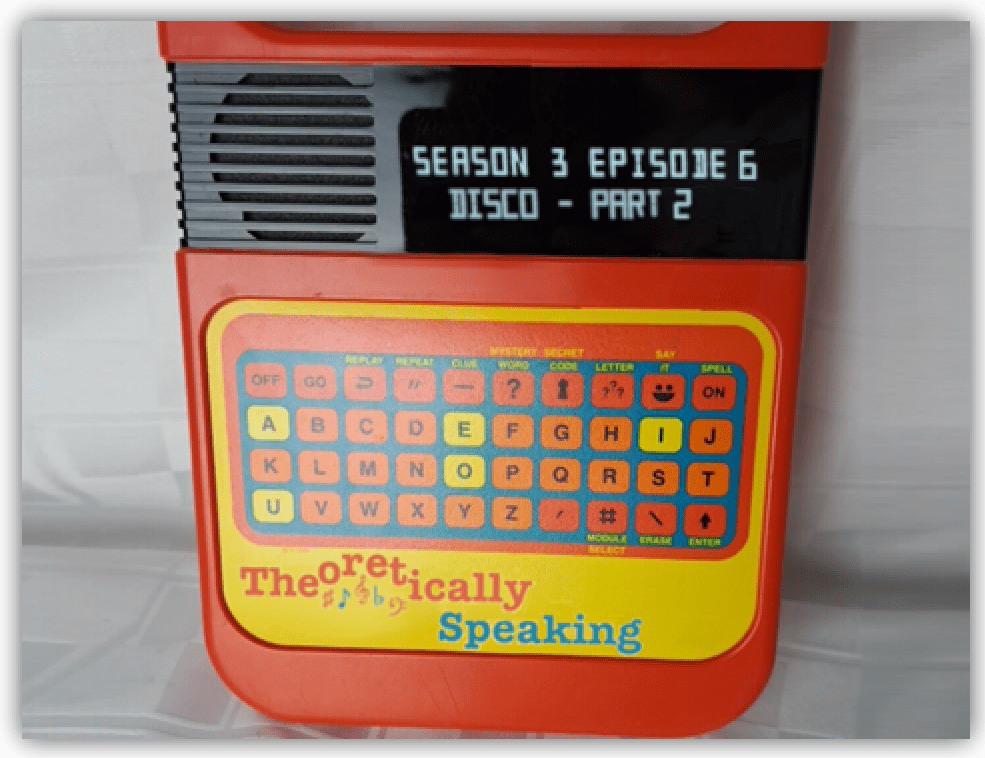

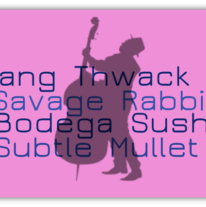
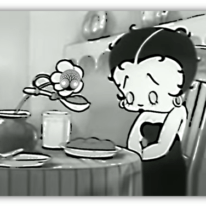
Nice job, Bill. I have had several discussions, and at least one debate, with folks about the summer of ’79 in Chicago. Having lived it — my family hadn’t yet moved to South Bend, Ind. — and being a still-closeted (even to myself) 15- going on 16-year-old, I was probably about as sensitive to that whole brouhaha as any white male could be. Anyone who tries to argue that Disco Demolition Night wasn’t inherently, as well as explicitly, racist and homophobic will get the full rant from me.
On the music side of things … agreed on Cher and 1999. But I’d argue even moreso for the follow-up to “Believe,” which missed the Top 40. “Strong Enough” sounds like it could have been lifted directly from a Barbra Streisand or Donna Summer collection of 1979 and placed on Cher’s comeback CD two decades later.
Shout out to our host, mt58, for finding the disco/breakfast cereal connection. I thought I was making up something completely ridiculous, but should’ve known he’d find it if it existed.
And if it didn’t, he’d create it from scratch.
Now I have a yearning for MT58’s new disco album.
If it was good enough for the Sugar Bears …
https://www.youtube.com/watch?v=gZuLj4ggcOg
As an expansion of my comment last week, is there a genre that is as joyful but so unfairly maligned as disco? As Gloria put it ‘I will survive’ and good to see that its influence is still going strong and fighting back against prejudice.
Call me clueless (and in the 70s, definitely innocent), but I had no idea the underlying currents in disco music.
“In the Navy”? “He’s the Greatest Dancer”? “YMCA”? “I’M COMING OUT”??!!
Not a clue.
But at least I can say I wasn’t as clueless as a good friend of mine. He was a fan of art films, foreign films, et al, and he told me about a time he went to the Philadelphia Film Festival and a midday showing of a film titled Beefcake.
He’s big into fitness, and was interested in the origins of that field…and was surprised to see it was a secret get together for homosexuals in the 50s.
“I couldn’t believe it! I left after the second man-on-man oral performance!”
The rest of us looked on, stunned. Finally someone piped up: “Dude! What did you do during the first??!!”
Bill, I read your post first thing this a.m. but I’ve been letting it digest all day.
You hit the nail on the head in all aspects except the one dimension one can’t adequately define unless one has been alive during that time.
THE ENERGY!
Back at the Mothership I wrote about a college classmate who was a superb musician ( his band has been a go to group for all the big shindigs the past thirty years) and he was very dismissive of disco as a genre until the week he was chosen to perform in the band behind Donna Summer in her only appearance in our fair city.
He was blown away by the energy activated when the music played and told
me he had a new respect for the genre.
Also, I went through my Donna Summer records the other night and what a voice! her double concept albums with Moroder are masterpieces of what true disco meant. “Once Upon a Time”, “Rumor Has It”, “Spring Affair” and my personal favorite, “Try Me”, are as fresh today as then.
She always raged against being called the Disco Queen.
“I have never used the word disco in any of my songs. I have this magic thing when I sing that brings joy to everyone and I resent being pigeon-holed into
a single genre”
The other note I would make is that many of the artists disco made popular
went on to success in other genres.
Ms. Summer won several Grammys for gospel music and the Bee Gees went on to write many a successful song for other artists (Barry had a #One with
Babs with “Guilty”).
I wrote another post about the disco era about my special relationship with Linda with the green eyes (I think it was for one of the Saturday Night Fever #1’s) and was very proud when Bixmeister called the best recollection of that time frame.
A very happy holidays to Bix and Bear and all of the posters, past and present!
Thanks, DF, for the impassioned Summer shoutout. You know how much she factors in Tom’s and my story.
One thing I never understood is how myopic radio was in the ’80s whenever she tried to break out of the disco mold. Her Springsteen-written “Protection” should have been a smash on AOR radio if not on Top 40. It wasn’t touched. “Dinner With Gershwin” ought to have been a hit. It stumbled. Even her several SAW follow-ups to “This Time I Know It’s for Real” (my favorite being “When Love Takes Over You”) could have been contenders. But U.S. radio seemed unwilling to give her any room for a different sound (aside from the remake of “There Goes My Baby,” which happened to be my least favorite of her ’80s songs).
“Protection” isn’t included on Tracks. I found “Protection” on YouTube. Oh, wow. I’m hearing a new Bruce Springsteen track…And now I’m hearing the Donna Summer version. I guess I shouldn’t be too surprised. “Fire”. “Pink Cadillac”. The more you know. Two years ago, I learned Paddy McAloon wrote a song for Cher. I’m not sure why he didn’t give it to Kylie Minogue. Minogue is the only major artist to officially cover Prefab Sprout.
Dear god – that Dazzler movie would have been AMAZING. As a dedicated old-school X-Men collector, I proudly own her first appearance:
Disco Rules. People who don’t like it are stupid poopy-heads.
😁
Language, young lady!